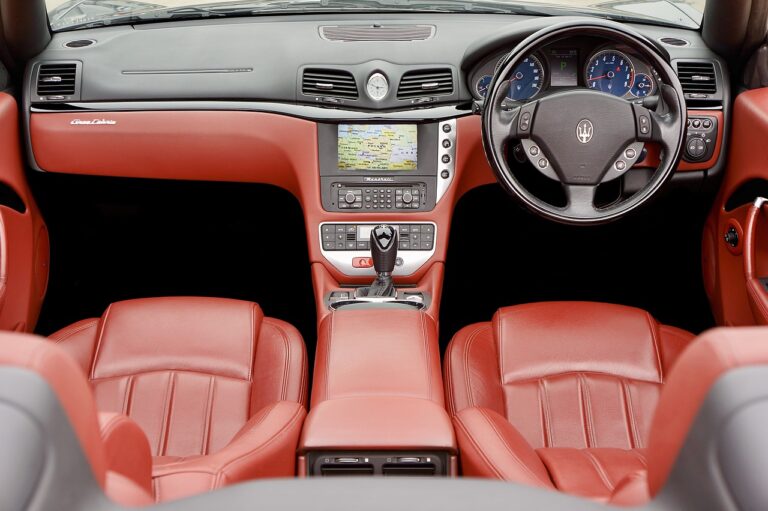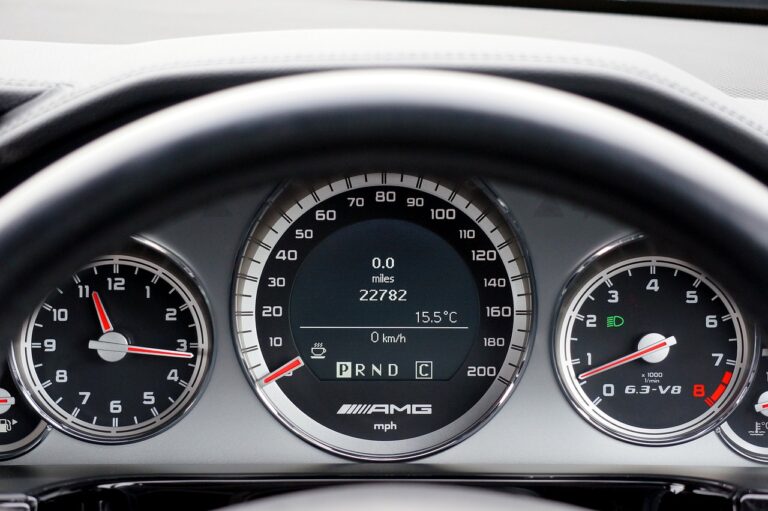The Role of Blockchain in Auto Auctions: Diamond exchange 9, Sky99exch, Reddybook
diamond exchange 9, sky99exch, reddybook: Blockchain technology has been making waves in various industries, including finance, supply chain management, and healthcare. One area where blockchain is poised to make a significant impact is in auto auctions. Auto auctions are a crucial part of the automotive industry, providing a platform for buyers and sellers to transact used vehicles. However, the current system is not without its flaws, which is where blockchain comes in to revolutionize the process.
Why Blockchain?
Before we delve into the role of blockchain in auto auctions, let’s first understand what blockchain is and why it is the perfect solution for revolutionizing this industry. Blockchain is a decentralized, distributed ledger technology that enables secure and transparent transactions without the need for intermediaries. By storing data in blocks that are linked together in a chain, blockchain ensures that information is immutable and cannot be tampered with.
In the context of auto auctions, blockchain can streamline the entire process by providing a secure platform for buyers and sellers to transact with trust and transparency. The use of smart contracts, which are self-executing contracts with the terms of the agreement between buyer and seller directly written into code, can automate various aspects of the auction process, such as bidding, payment, and transfer of ownership.
The Role of Blockchain in Auto Auctions
1. Transparency and Trust
One of the key benefits of using blockchain in auto auctions is transparency and trust. With blockchain, every transaction is recorded on a secure and immutable ledger, making it easy for buyers to verify the authenticity of a vehicle’s history, including its ownership, maintenance records, and any past accidents. This brings a level of transparency that is currently lacking in traditional auto auctions, where buyers often have to rely on trust in the auction house or seller.
2. Fraud Prevention
Fraud is a significant concern in the auto auction industry, with cases of odometer tampering, title washing, and other fraudulent activities being common. Blockchain can help prevent fraud by creating a tamper-proof record of a vehicle’s history, including its mileage, maintenance records, and ownership. This ensures that buyers can trust the information provided by sellers and reduces the risk of falling victim to fraudulent activities.
3. Lower Transaction Costs
By eliminating the need for intermediaries, such as auction houses and escrow services, blockchain can significantly reduce transaction costs in auto auctions. Smart contracts can automate various aspects of the auction process, such as bidding, payment, and transfer of ownership, eliminating the need for manual intervention and reducing the fees associated with traditional auctions.
4. Faster Transactions
Traditional auto auctions can be time-consuming, with the entire process, from registration to payment and transfer of ownership, taking days or even weeks to complete. Blockchain can speed up the process by automating various steps through smart contracts, ensuring that transactions are completed in a matter of minutes rather than days.
5. Global Reach
Blockchain has the potential to open up auto auctions to a global audience, allowing buyers and sellers from around the world to transact with ease. By eliminating geographical barriers and providing a secure platform for cross-border transactions, blockchain can expand the reach of auto auctions and increase liquidity in the market.
6. Immutable Record of Ownership
One of the critical challenges in the auto industry is verifying the ownership history of a vehicle. With blockchain, every transfer of ownership is recorded on a secure and immutable ledger, creating a transparent record of ownership that cannot be tampered with. This not only provides buyers with confidence in the authenticity of a vehicle’s ownership history but also simplifies the transfer of ownership process.
7. Enhanced Security
Blockchain technology is known for its robust security features, making it an ideal solution for protecting sensitive data in auto auctions. By encrypting data and storing it on a distributed ledger, blockchain ensures that information is secure from unauthorized access or tampering. This is especially important in the auto industry, where personal and financial information must be safeguarded.
8. Improved Auction Process
Blockchain can streamline the entire auction process by automating various steps, such as registration, bidding, payment, and transfer of ownership. Smart contracts can ensure that transactions are executed automatically once the terms of the agreement are met, reducing the need for manual intervention and streamlining the process for both buyers and sellers.
9. Enhanced Customer Experience
By providing a secure and transparent platform for buyers and sellers to transact, blockchain can enhance the customer experience in auto auctions. Buyers can trust the authenticity of a vehicle’s history, while sellers can rest assured that their information is secure and their transactions are protected. This leads to increased trust and confidence in the auction process, ultimately improving the overall customer experience.
10. Regulatory Compliance
Blockchain technology can help auto auctions comply with regulatory requirements by providing a secure platform for recording transactions and ensuring transparency in the auction process. By creating a tamper-proof record of a vehicle’s history, blockchain can help auto auctions meet regulatory standards and prevent fraud and illicit activities.
11. Real-Time Access to Information
Blockchain technology enables real-time access to information, allowing buyers to verify a vehicle’s history instantly and make informed decisions. By storing data on a distributed ledger that is accessible to all participants, blockchain ensures that information is up-to-date and accurate, reducing the risk of misinformation or fraud.
12. Increased Market Efficiency
By streamlining the auction process and reducing transaction costs, blockchain can increase market efficiency in the auto industry. Buyers and sellers can transact with trust and transparency, leading to more efficient transactions and a more liquid market. This can benefit both buyers, who can find the vehicles they need more easily, and sellers, who can reach a larger audience of potential buyers.
13. Smart Contract Automation
Smart contracts are self-executing contracts with the terms of the agreement between buyer and seller directly written into code. In auto auctions, smart contracts can automate various aspects of the auction process, such as bidding, payment, and transfer of ownership. This reduces the need for manual intervention and ensures that transactions are executed efficiently and accurately.
14. Data Privacy
Data privacy is a significant concern in the auto industry, where sensitive information, such as personal and financial data, is exchanged during transactions. Blockchain technology can enhance data privacy by encrypting data and storing it on a distributed ledger, ensuring that information is secure from unauthorized access or tampering. This gives participants in auto auctions peace of mind that their data is protected and their transactions are secure.
15. Decentralized Ownership Records
Blockchain technology enables decentralized ownership records, where every transfer of ownership is recorded on a secure and immutable ledger. This creates a transparent record of ownership that cannot be tampered with, providing buyers with confidence in the authenticity of a vehicle’s history. Decentralized ownership records also simplify the transfer of ownership process, making it easier for buyers and sellers to transact.
16. Scalability
Blockchain technology is highly scalable, allowing auto auctions to handle a large volume of transactions efficiently. By storing data in blocks that are linked together in a chain, blockchain ensures that transactions can be processed quickly and securely, even during peak periods of activity. This scalability is essential for auto auctions, where hundreds or even thousands of vehicles may be transacted in a single auction event.
17. Tokenization
Blockchain technology enables tokenization, where physical assets, such as vehicles, are represented digitally on a blockchain network. By tokenizing vehicles, auto auctions can create digital representations of assets that can be easily transacted on a secure and transparent platform. This opens up new opportunities for fractional ownership, leasing, and other innovative financial products in the auto industry.
18. Traceability
Blockchain technology provides traceability of a vehicle’s history, including its ownership, maintenance records, and any past accidents. By creating a tamper-proof record of a vehicle’s history, blockchain ensures that buyers can trust the information provided by sellers and make informed decisions. This traceability is crucial for ensuring the authenticity of a vehicle’s history and preventing fraud in auto auctions.
19. Environmental Benefits
Blockchain technology can have environmental benefits by reducing the use of paper and other resources in auto auctions. By digitizing transactions and storing data on a secure and immutable ledger, blockchain eliminates the need for paper-based documentation and manual record-keeping. This not only reduces the environmental impact of auto auctions but also improves efficiency and transparency in the process.
20. Future Potential
The role of blockchain in auto auctions is still in its early stages, with many opportunities for innovation and growth in the future. As blockchain technology continues to evolve and mature, we can expect to see new applications and use cases emerge in the auto industry. From tokenization to decentralized ownership records to enhanced security features, blockchain has the potential to revolutionize auto auctions and transform the way vehicles are bought and sold.
In conclusion, blockchain technology has the potential to revolutionize auto auctions by providing a secure and transparent platform for buyers and sellers to transact. From transparency and trust to fraud prevention to lower transaction costs, blockchain offers a wide range of benefits that can streamline the auction process and improve the overall customer experience. As blockchain technology continues to evolve, we can expect to see new applications and use cases emerge in the auto industry, ultimately transforming the way vehicles are bought and sold.
FAQs
Q: How does blockchain prevent fraud in auto auctions?
A: Blockchain prevents fraud in auto auctions by creating a tamper-proof record of a vehicle’s history, including its ownership, maintenance records, and any past accidents. This ensures that buyers can trust the information provided by sellers and reduces the risk of falling victim to fraudulent activities.
Q: What are smart contracts, and how do they automate the auction process?
A: Smart contracts are self-executing contracts with the terms of the agreement between buyer and seller directly written into code. In auto auctions, smart contracts can automate various aspects of the auction process, such as bidding, payment, and transfer of ownership. This reduces the need for manual intervention and ensures that transactions are executed efficiently and accurately.
Q: How does blockchain enhance data privacy in auto auctions?
A: Blockchain enhances data privacy in auto auctions by encrypting data and storing it on a distributed ledger, ensuring that information is secure from unauthorized access or tampering. This gives participants in auto auctions peace of mind that their data is protected and their transactions are secure.
Q: What is tokenization, and how can it benefit auto auctions?
A: Tokenization is a process where physical assets, such as vehicles, are represented digitally on a blockchain network. By tokenizing vehicles, auto auctions can create digital representations of assets that can be easily transacted on a secure and transparent platform. This opens up new opportunities for fractional ownership, leasing, and other innovative financial products in the auto industry.







